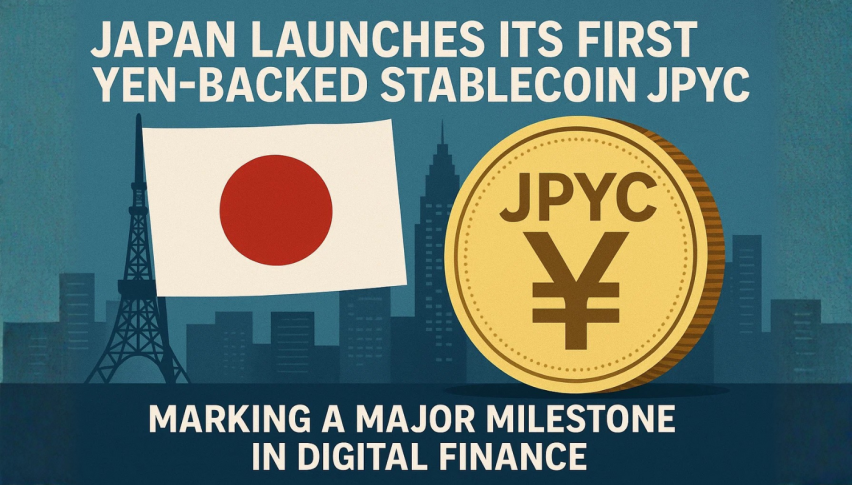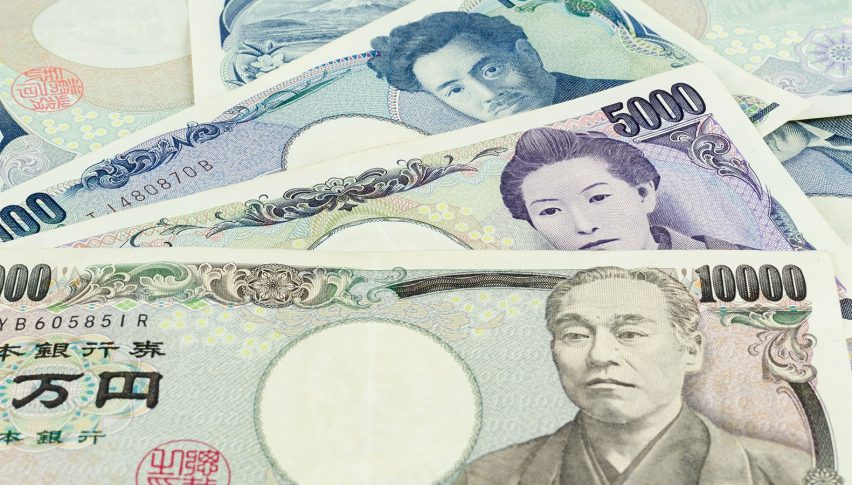Japan Launches Its First Yen-Backed Stablecoin JPYC, Marking a Major Milestone in Digital Finance
The Tokyo-based fintech company JPYC Inc. has introduced JPYC Japan's first yen-backed stablecoin marking the country's official entry...

Quick overview
- JPYC Inc. has launched Japan's first yen-backed stablecoin, marking the country's entry into the global stablecoin market.
- The stablecoin, supported by bank deposits and Japanese government bonds, aims to maintain a 1:1 exchange rate with the yen and is fully regulated under Japan's Payment Services Act.
- JPYC is the first legally recognized yen stablecoin in Japan, with several businesses already expressing interest in integrating it into their operations.
- The launch of JPYC is expected to enhance Japan's position in the global stablecoin market and promote blockchain adoption across Asia.
The Tokyo-based fintech company JPYC Inc. has introduced JPYC Japan’s first yen-backed stablecoin marking the country’s official entry into the global stablecoin market. The introduction of a fully regulated digital Japanese yen that can be used for cross-border transactions, savings and payments is a significant milestone in Japan’s financial development.
Monday saw the introduction of JPYC Inc.’s new issuance and redemption platform JPYC EX. The stablecoin which is fully supported by bank deposits and Japanese government bonds (JGBs) is planned to maintain a 1:1 exchange rate with the yen. This makes JPYC a transparent and safe digital asset that follows with other financial standards as well as Japan’s Payment Services Act.
The company highlighted that JPYC is the first legally recognized yen stablecoin in Japan after registering as a fund transfer service provider with the Financial Services Agency (FSA) in August. JPYC helps easy token transfers and usage between decentralized networks by operating on several blockchains with Ethereum, Avalanche and Polygon.
The debut was referred to as a “major milestone in the history of Japanese currency” by JPYC President Noriyoshi Okabe during a press conference in Tokyo. According to him at least seven businesses have already said interest in incorporating JPYC into their operations. These consist of payment service providers and fintech software companies that intend to make JPYC-based payments available for both online and retail transactions.
Densan System, one of these partners, is working on creating payment systems for retailers and online marketplaces that will use JPYC. JPYC will be incorporated into Asteria’s enterprise software, which is utilized by more than 10,000 Japanese businesses. The Japanese cryptocurrency wallet service HashPort also plans to incorporate JPYC transactions into its software.
The Users can use the JPYC EX platform to deposit yen through a bank transfer and get JPYC in their registered wallet following identity verification with Japan’s My Number ID card. Additionally the procedure is reversible users may always convert JPYC back into yen.
In three years the corporation hopes to have 10 trillion yen (about $65 billion) in circulation which is an ambitious long-term aim. In order to make payments quicker, less expensive and more effective JPYC means to develop a new digital financial infrastructure for Japan that makes use of blockchain.
🇯🇵 BIG: Japanese startup, JYPC launches the world's first yen-pegged stablecoin, with initial deployment on Ethereum, Avalanche, and Polygon. pic.twitter.com/nFm5QxYRG5
— Cointelegraph (@Cointelegraph) October 27, 2025
Japan’s stablecoin industry is being more planned at the time of the introduction. Strict rules were effected by the government in June 2023, mandating that all stablecoin issuers register with the FSA and keep reserves in domestic banks or government securities. Japan is among the most progressive nations for regulated digital currencies because of these rules which guarantee transparency, security and consumer protection.
The market for stablecoins in Japan is expected to expand rapidly. In August the Tokyo-based financial services company Monex Group declared its intention to launch its own stablecoin that is yen-pegged. The three biggest banks in Japan Mitsubishi UFJ (MUFG) Sumitomo Mitsui (SMBC) and Mizuho Bank are jointly examining the possibility of issuing stablecoins via MUFG’s Progmat platform.
🚨JAPANESE YEN STABLECOIN IS HERE!
🇯🇵Startup JPYC will launch the world’s first yen-pegged stablecoin, fully backed by Japanese savings and government bonds. pic.twitter.com/hd8tdVBAbR
— Coin Bureau (@coinbureau) October 27, 2025
JPYC’s launch may change Japan’s place in the $300 billion global stablecoin market which has historically been controlled by USDT and USDC two tokens backed by the US dollar. In digital banking a regulated yen stablecoin increases diversity and fortifies Japan’s position.
Since Japan’s liberal approach to digital currencies boosts investor trust and broadens blockchain adoption throughout Asia analysts think this decision also helps Bitcoin’s long-term growth.
- Check out our free forex signals
- Follow the top economic events on FX Leaders economic calendar
- Trade better, discover more Forex Trading Strategies
- Open a FREE Trading Account
- Read our latest reviews on: Avatrade, Exness, HFM and XM


